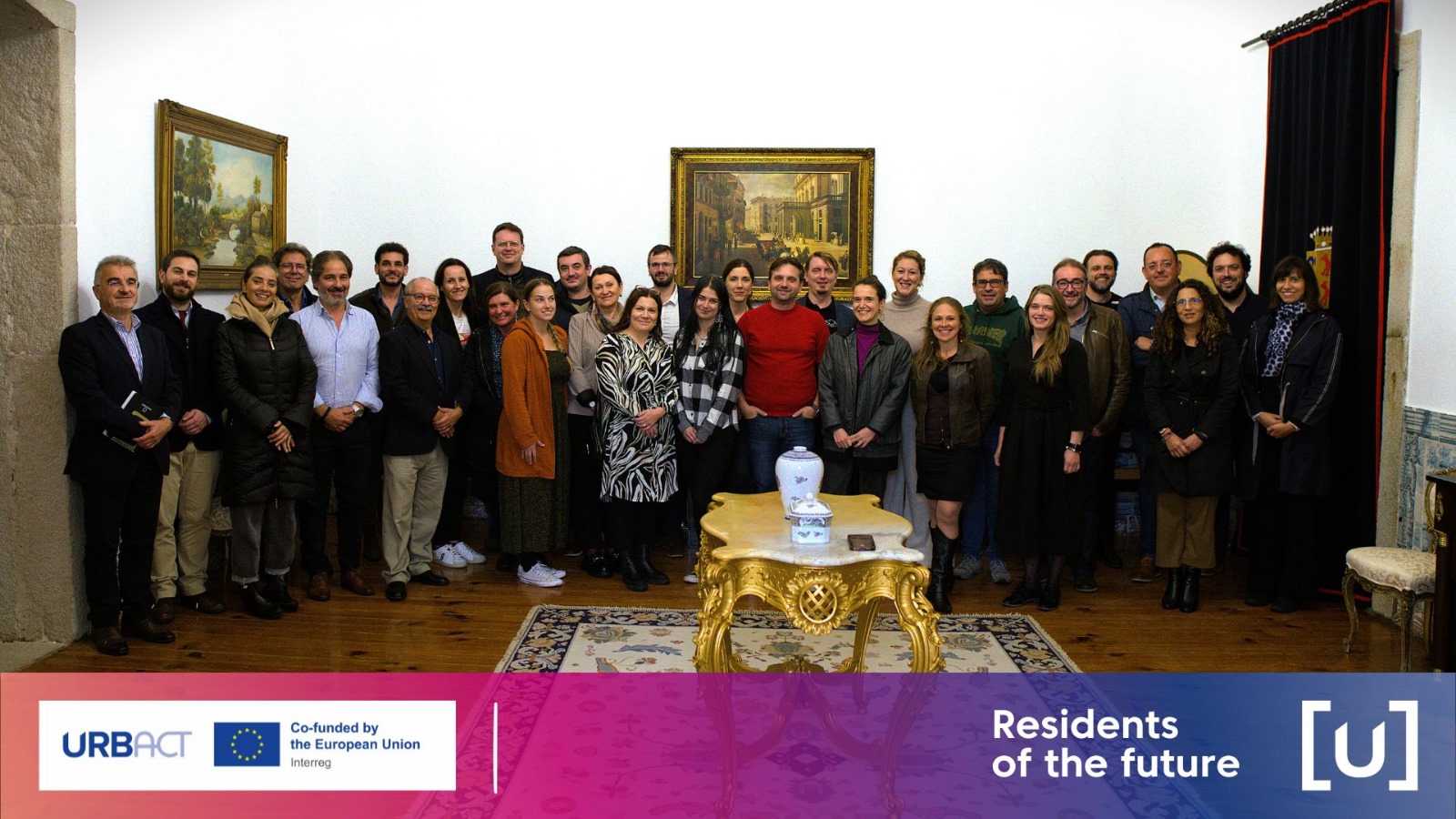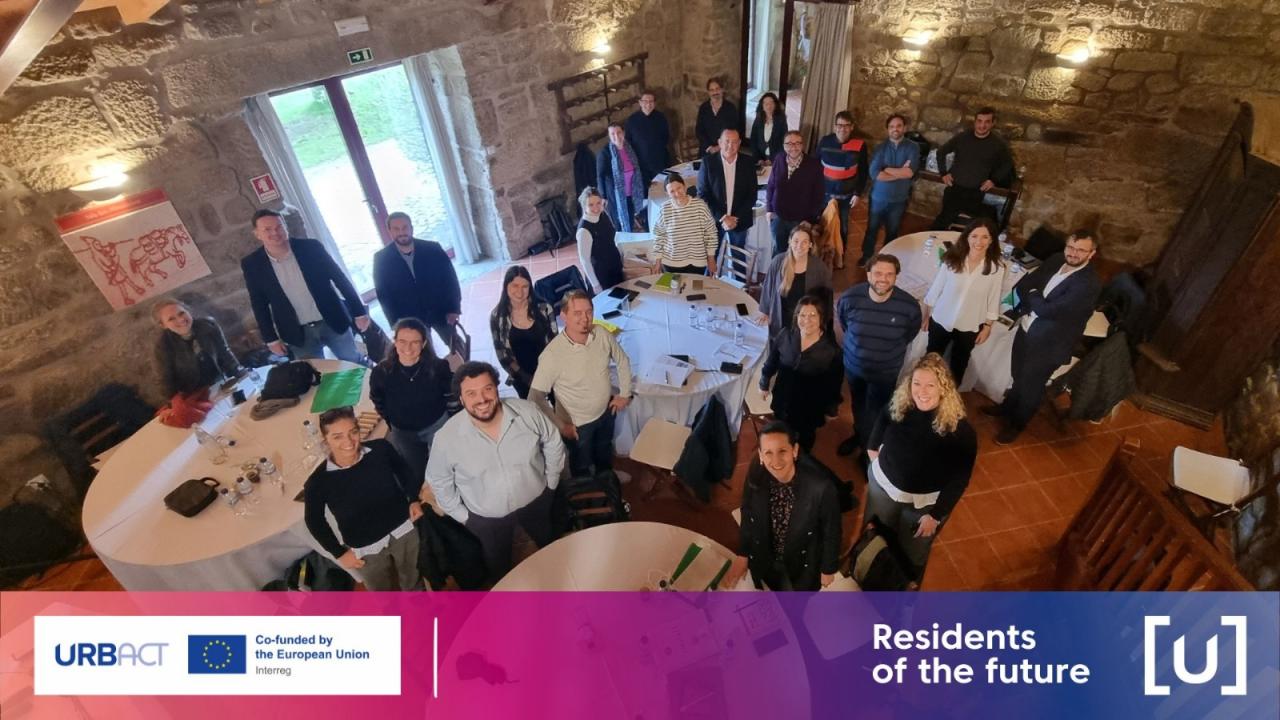Day 1: Launching with vision and reflection
The first day opened with an introduction to the state of project’s action planning journey. Nikolina Gracin, the Project Manager from the lead partner city of Šibenik, Croatia, presented key insights from the mid-term review survey, highlighting achievements and challenges faced by each partner city. Participants discussed specific factors that either facilitated or hindered their Integrated Action Plans (IAPs). Obstacles such as funding limitations and administrative bottlenecks were common challenges, while active partnerships and innovative local governance emerged as strengths that accelerated progress. Each city shared feedback and advice on risk mitigation, with cities offering mutual support for refining their approaches to overcome shared obstacles.

City branding and marketing - tools for presenting your city as an attractive place to live, work, and invest.
Carlos Brito, the author of Mangualde’s marketing strategy, presented branding as a strategic tool to retain existing and attract new residents. Clear, targeted messaging can elevate a city’s profile and make it a more attractive place to live, work, and invest. Through Carlos Brito’s additional guidance, cities worked on tailored city branding approaches. He introduced practical techniques from Mangualde’s own marketing initiatives, illustrating how targeted branding could bring sustainable economic benefits. This session underscored the importance of cohesive, authentic messaging that resonates with both local residents and external investors, ensuring that economic growth aligns with community needs.
Culture & housing define the quality of life in the city
The second day began with a workshop led by the city of Plasencia, Spain, on leveraging heritage, culture, and tourism to enhance city quality of life. Plasencia shared its own strategies, which integrated cultural assets into the city’s brand, drawing on the city’s history and local identity to attract visitors and foster a sense of belonging among residents. The workshop provided a model for other cities aiming to harness cultural resources to strengthen community ties and drive economic growth.
The city of Mantova, Italy, led a session on housing strategies, sharing their approach to affordable and sustainable housing solutions that promote inclusive urban growth. Mantova’s case study served as a model for cities striving to address housing challenges within sustainable urban frameworks.
Attracting investments that create better jobs is the key for tackling the urban shrinkage
Better job opportunity is one of the main reasons for migration. Attracting good investments that will create high - income jobs is the key to tackel urban shrinkage. An afternoon session focused on investment attraction, specifically for small cities. Led by project's lead expert, Tiago Ferreira and supported by case studies, cities explored methods for appealing to Foreign Direct Investment (FDI) and cultivating local industries. Participants learned how to use distinctive local characteristics—such as a skilled workforce and cultural heritage—to attract businesses and investors.
The conference closed with a reflective session, reinforcing the commitment to mutual support and friendship forged during the meeting. Attendees agreed that they were leaving Mangualde not just as project partners, but as friends and allies, united by a shared mission to improve urban life across Europe. Celebrations included a farewell dinner, complete with local wines and Portuguese dishes, marking the close of an inspiring and productive gathering.


